
House of Cards is a 1990 British political thriller television serial in four episodes, set after the end of Margaret Thatcher's tenure as Prime Minister of the United Kingdom. It was televised by the BBC from 18 November to 9 December 1990. Released to critical and popular acclaim for its writing, direction, and performances, it is considered one of the greatest British television shows ever made.

William Armand Thomas "Tristan" Garel-Jones, Baron Garel-Jones, PC was a British politician. A member of the Conservative Party, he served as the Member of Parliament (MP) for Watford from 1979 to 1997, before being made a life peer in 1997.
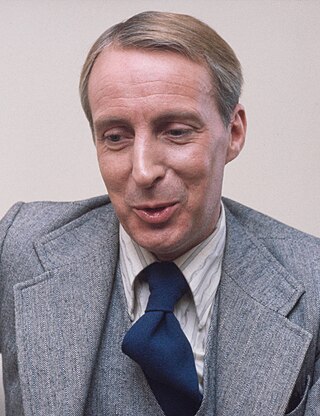
Ian William Richardson was a British actor from Edinburgh, Scotland. He was best known for his portrayal of machiavellian Tory politician Francis Urquhart in the BBC's House of Cards (1990–1995) television trilogy, as well as the pivotal spy Bill Haydon in Tinker Tailor Soldier Spy (1979). Other notable screen work included a portrayal of Sherlock Holmes in two films, as well as significant roles in Brazil, M. Butterfly, and Dark City.

First Among Equals is a 1984 novel by British author Jeffrey Archer, which follows the careers and personal lives of four fictional British politicians from 1964 to 1991, with each vying to become Prime Minister. Several situations in the novel are drawn from Archer's own early political career in the British House of Commons, and the fictional characters interact with actual political figures from the UK and elsewhere including Winston Churchill, Alec Douglas-Home, Harold Wilson, Edward Heath, Margaret Thatcher, Douglas Hurd, Muammar al-Gaddafi, Gary Hart and Queen Elizabeth II.

Aunt Sally is a traditional English game usually played in pub gardens and fairgrounds, in which players throw sticks or battens at a ball, known as a 'dolly', balanced on top of a stick; traditionally, a model of an old woman's head was sometimes used. Leagues of pub teams still play the game, throughout the spring and summer months, mainly in Oxfordshire and some bordering counties. In France, the game is called jeu de massacre.

The Final Cut is a 1995 BBC television serial, the third part of the House of Cards trilogy. Directed by Mike Vardy, the serial, based on Michael Dobbs's 1994 novel of the same name, was adapted for television by Andrew Davies. It details the conclusion of Francis Urquhart's reign as Prime Minister of the United Kingdom.
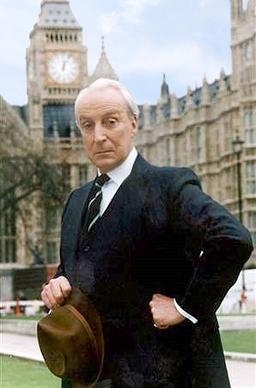
Francis Ewan Urquhart is a fictional character, the villainous protagonist of the 1990 British television series Michael Dobbs' House of Cards trilogy of novels. In the television series, he is portrayed by Ian Richardson, and is a member of the Conservative Party, Urquhart is known to be a ruthless politician who rises from Chief Whip of the Conservative Party to Prime Minister of the United Kingdom through much treachery, deception and murder. He is married to Elizabeth Urquhart, who often persuades him to use a given situation to his advantage.
The Palliser novels are six novels written in series by Anthony Trollope. They were more commonly known as the Parliamentary novels prior to their 1974 television dramatisation by the BBC broadcast as The Pallisers. Marketed as "polite literature" during their initial publication, the novels encompass several literary genres including: family saga, bildungsroman, picaresque, as well as satire and parody of Victorian life, and criticism of the British government's predilection for attracting corrupt and corruptible people to power.
Mattie is a given name and nickname, used for people with names such as Matthew, Matthea, Matilda, or Martha.
Diane Fletcher is an English actress. She graduated from the Royal Academy of Dramatic Art in 1966.
A political thriller is a thriller that is set against the backdrop of a political power struggle, high stakes and suspense is the core of the story. The genre often forces the audiences to consider and understand the importance of politics. The stakes in these stories are immense, and the fate of a country is often in the hands of one individual. Political corruption, organized crime, terrorism, and warfare are common themes.
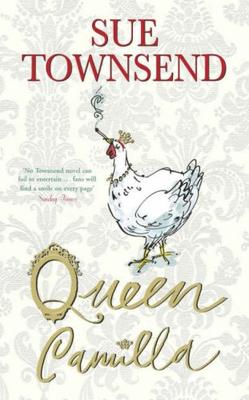
Queen Camilla is a satirical novel by the British author Sue Townsend.
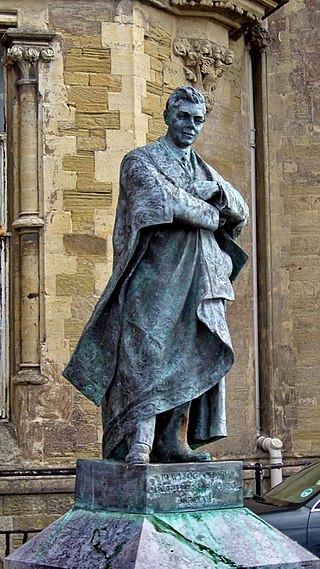
Edward VIII and Wallis Simpson have been depicted in popular culture, both biographical and fictional, following his abdication in 1936 and their marriage the following year.
The Chief Whip of the Conservative Party oversees the whipping system in the party, which is responsible for ensuring that Conservative MPs or members of the House of Lords attend and vote in parliament in the desired way of the party leadership. Chief Whips, of which two are appointed in the party, a member of the House of Commons and a member of the House of Lords, also help to organise their party's contribution to parliamentary business.

House of Cards is a political thriller novel by British author Michael Dobbs. Published in 1989, it tells the story of Francis Urquhart, a fictional Chief Whip of the Conservative Party, and his amoral and manipulative scheme to become leader of the governing party and, thus, Prime Minister of the United Kingdom.

Bag of Bones or Stephen King's Bag of Bones, is an American gothic horror television miniseries adaptation of Stephen King's 1998 novel of the same name. Directed by Mick Garris from Matt Venne's screenplay, it was first aired in 2011 on the A&E Network in two parts. When shown on British Channel 5 on 29 December 2012, it was however shown as a single 162-min film.
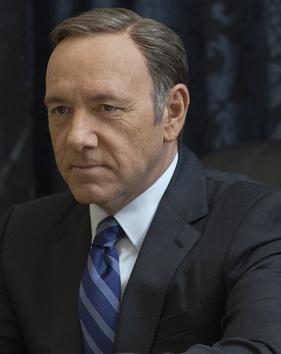
Francis Joseph Underwood is a fictional character and the protagonist of the American adaptation of House of Cards, portrayed by Kevin Spacey. He is depicted as a ruthless politician who rises from United States House of Representatives majority whip to president of the United States through treachery, deception and murder. He is based on Francis Urquhart, the protagonist of the British novel and television series House of Cards, from which the American Netflix series is drawn. He is married to Claire Underwood, and also had a sexual relationship with Zoe Barnes in season 1. He made his first appearance in the series' pilot episode, "Chapter 1".
A Very British Coup is a 1988 British political serial adapted from Chris Mullin's 1982 novel A Very British Coup in 1988 by screenwriter Alan Plater and director Mick Jackson. Starring Ray McAnally, the series was first screened on Channel 4 and won Bafta and Emmy awards, and was screened in more than 30 countries.












